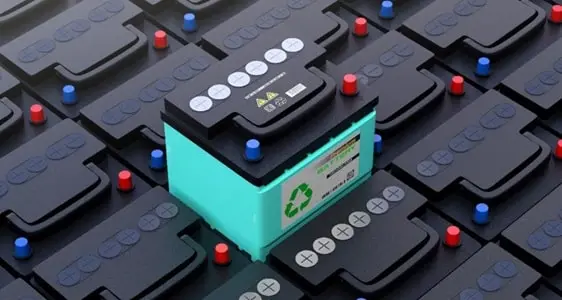Starting a battery business in India is smart because batteries are always needed in different industries—big names like Exide, Luminous, and Okaya team up with smaller businesses to sell batteries nationwide. The demand for energy storage is rising in India, making batteries crucial for efficient business operations. There are two types of batteries: rechargeable and non-rechargeable. This guide will explain how to begin a battery business in India, the required documents, how to apply for a battery dealership, and ways to maximize profits.
Steps To Start Your Battery Manufacturing Business In India:
Researching the market and understanding competitors is crucial before diving into a battery business in India. A report from Grand View Research predicts the global battery market will hit ₹31080 crores by 2027. Reuters notes that over 80% of lithium-ion batteries are made in China, with the European Union being a significant contributor. Understanding battery manufacturing types is essential before investing in a specialized market. Key factors to consider include customer preferences, product demand, and your company’s capacity for large-scale production or distribution. Here are the essential aspects to focus on:
- Market Research: Understand customer needs and preferences.
- Demand Analysis: Assess if there’s a high demand for your chosen product.
- Manufacturing Knowledge: Familiarize yourself with various battery manufacturing types.
- Capacity Evaluation: Ensure your company can handle large-scale production or distribution.
Legal Terms And Conditions
Each state in India has distinct legal requirements for operating a battery business, so it’s vital to consider all necessary licenses, permits, and authorizations before starting. Your facilities must comply with legal and quality regulations before commencing production. Besides meeting regulatory standards, factors like required equipment, workforce size, marketing strategy, and company expansion plans are crucial considerations.
Also Read: How to Start a Battery Manufacturing Business
Registration And Licence:
To start the battery business, ensure you have the following documents and licenses:
- Trade License from the municipality
- GST Registration Number
- Business Insurance (recommended)
- Current Bank Account
- State-government approved shop and establishment registration documents
- Business Registration (sole proprietorship is sufficient)
Consulting a local CA or battery dealership agency can aid in obtaining these documents. In case of insufficient funding, approach banks or private financial institutions offering small business loans. SIDBI is known for providing favorable loan offers to battery dealership companies in India.
Business Plan
Creating a robust battery business plan enables companies to sell batteries to shops and handle distribution directly. All battery brands collaborate with distributors across various regions. If running a multi-brand battery shop, expect to partner with diverse brands, including local ones. Customers prefer branded batteries due to their guaranteed quality and reputation. Selling branded batteries is easier since clients trust these products and their effectiveness.
Used batteries have a market and are sold at discounted rates. Consider stocking a few and offering them to customers at reasonable prices. While inverter batteries are available, customer trust issues concerning servicing and maintenance often deter purchases.
Investment Required
The investment needed for your battery business depends on the brand you partner with and your stocking products. Here’s a general breakdown of costs:
- Security deposit for battery distributorship: ₹1 to 2 lacs
- Battery recharging machines: ₹15,000 to ₹25,000
- Shop interior designs and signage: ₹25,000
- Miscellaneous business expenses: ₹20,000
- Shop security deposit (varies by location): ₹50,000
Additionally, ongoing expenses like labor, operating costs, shop rent, equipment maintenance, bills, utilities, and adding stock will contribute to your overall investment beyond this initial list.
Profit Margin Of Your Business
Due to their novelty, working with local brands and smaller businesses in the battery market can yield higher profit margins. However, convincing customers to buy from them might be challenging since they need more recognition. Inverter batteries present an opportunity for up to 35% profit margins, while two-wheeler and four-wheeler batteries offer profits ranging from 20% to 30%, which is quite favorable.
Initially, your brand might need help making sales and achieving targets, which is common. Established companies have broader outreach but lower profit margins. If time constraints are manageable, exploring this avenue might be worthwhile for your business growth.
Conclusion:
Now equipped with the knowledge of starting a battery business in India, you can begin establishing your company. Collaborating with a dealership or distributor is smart, considering the challenges of manufacturing and marketing products from scratch. As your company expands, there’s room to innovate and introduce new product lines. Attracting the right clients is crucial, and investing in a social media marketing strategy can be rewarding, given the trend of companies building their digital presence.















